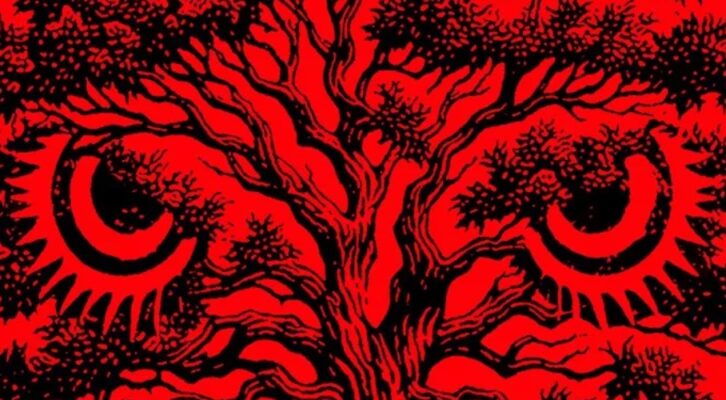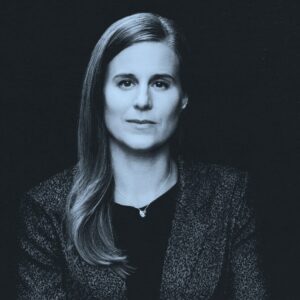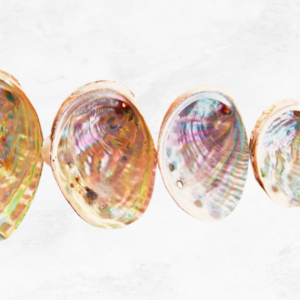
Maurice Carlos Ruffin on the History of Powerful Black Women Challenging the Establishment
In Conversation with Whitney Terrell and V.V. Ganeshananthan on Fiction/Non/Fiction
Fiction writer Maurice Carlos Ruffin joins co-hosts Whitney Terrell and V.V. Ganeshananthan to talk about the literary and historical antecedents to Fani Willis, the Georgia prosecutor who has filed a RICO case against Trump and 18 co-defendants for their illegal attempt to overturn the results of the 2020 election. He discusses the long history of Black women who have challenged the white establishment when it comes to issues like political corruption, incarceration, and violence. He reads from his forthcoming novel The American Daughters, historical fiction about an enslaved woman who joins a society of spies.
Check out video excerpts from our interviews at Lit Hub’s Virtual Book Channel, Fiction/Non/Fiction’s YouTube Channel, and our website. This episode of the podcast was produced by Anne Kniggendorf.
*
From the episode:
Whitney Terrell: What kind of research did you do for the novel? And can you talk about the historical parallels for Ady and the women that she joins up with?
Maurice Ruffin: Yeah, this book really is the culmination of a lifetime of research. It comes from the stories told to me by my ancestors, including my grandmother, mother, and other people in my family, but also, going out to the French Quarter in New Orleans to a place called the Williams Research Center and going through stacks and stacks of old books and newspaper clippings and microfiche, and that sort of thing. And then, doing 23andMe ancestry and finding documents from old state legislatures in places like Virginia and Alabama. And, I began to basically compile for myself a compendium of activities by Black folks, but especially Black women across the South and across the country, things that people are vaguely aware of if you’d like to do the research, but are rarely spoken about. And it was those activities by Black women over the course of hundreds of years that really inspired me to put this book together.
V.V. Ganeshananthan: The section you read reminded me a little bit of The Handmaid’s Tale. There are these scraps of evidence and this academic conference and people gathering together to assess. It’s a feminist project, essentially, from the get-go, and you’re a male writer taking this on, which is great. I feel like this is one of the questions of our time. I just want to say that I really appreciate that. And I’m curious if you could talk a little bit about this: right in that prologue there’s this question of belief. I’m reminded of Phyllis Wheatley, who was tested. Could she really write? “There’s no way she could possibly have been the author of that.” And Black women are the authors of their own destinies. That’s so powerful. Yet, from the second that they begin to tell the story, there’s this note of disbelief.
MR: Yeah, absolutely. In my mind, this is a feminist project. And The Handmaid’s Tale is, for me, a very important book. I remember reading that book as a young person and getting to the end of it, and seeing that epilogue at the researchers’ conference set in the distant future. It always stuck with me. And so I’ve wanted to actually try that myself. As a creative person, you can do whatever you want, you can take what you want from the past and put in your own work.
Beyond that, I think it is really important for us to acknowledge the work of so many women who were disregarded whether they were in the arts, whether they were activists. You know, I’ve had people I’ve worked with in the past that led me along this path. One basic example was, I was a book reviewer for the Virginia Quarterly Review for a few years. And the editor over there, she had me reviewing these books that I think were below the radar. One of the books, for example, was about unsung Black women, heroes of the civil rights movement. I had a chance to read a book about nine women from the 1950s, who, you know, some are more ubiquitous than others.
In my hometown, Leah Chase, the great restaurateur, is a local hero who I’ve met in person. The things I learned about her in that book—how she never really wanted to get acclaim for herself, and yet as a restaurateur, she literally fed people like Dr. King when they came to New Orleans and helped them have the energy to go out there and give their speeches and do their protests and sit-ins. So those sorts of things really inspired me in this project.
WT: Don’t you think Fani Willis feels that history that you’re talking about? You know, when she goes into work? The DA’s office in Fulton County was also the same DA’s office that used to uphold Jim Crow laws. She is in the seat of power that used to be used to oppress people like her. And I’m sure that she must feel that weight of history when she’s in off hours.
MR: In my experience, I think it’s the most natural thing in the world for Black women to be the kind of people who are the first to stand up for rights. I mean, there’s a reason why in so many recent elections, you know, we’re actually going back a very long way, you may have a very conservative presidential candidate and a very liberal one, and Black women tend to vote 95-ish percent every single time for the candidate who’s for freedom of human rights and social rights. And, it’s not for nothing that following the activity of the civil rights activists in the ’50s, all over the world you saw people responding to that. In Africa, for example, throughout the late ’50s, and early ’60s, you had so many countries fighting for independence and gaining it one by one by one. So these things are all connected. And I think that for somebody like Ms. Willis, she was raised in that tradition, and it’s totally normal for her to do that without even having to think very much about it. She’s going to do it.
WT: We should mention, I want to mention, Ida B. Wells, Sojourner Truth, Angela Davis, they are all in that sort of tradition of resistance in American life.
MR: Absolutely, no doubt about it. Those women are on my mind constantly. Sojourner Truth, Harriet Tubman, Ida B. Wells, for example, she was the first person to say, “I’m going to track all these lynchings, I need to have some actual evidence of what’s been happening here in this country, because the New York Times is not writing about it, you know. We’re not seeing so-called scholars writing about these things.” So at a great risk to her personal safety, she made it a point to go from place to place collecting these stories of people’s loved ones who had been killed by racist hate mongers, even to the point where she was being chased by these men who wanted to shut her up. And eventually, of course, she had to move to Chicago from the South, but not before she made a significant impact on the history of our country.
VVG: I was thinking, as we prepared for this episode about Nikole Hannah-Jones, whose Twitter handle is actually “Ida Bae Wells.” And I think that as the indictments were coming out, she tweeted, “Once again, it is Black people who are the greatest agents of democracy the United States has ever seen.” And I was like, yep.
MR: You’ll find no objection from me on that point.
WT: Three of the four prosecutors who are going after, and who have decided to file charges against Trump, are Black.
MR: Yeah. I will say that our country has always had challenges based on our history involving the treatment of Black men and women and children. I do think this is a sign of how far the nation has come that we do have three out of four Black prosecutors doing this. This would have been impossible even 50 years ago or so, and the fact that is happening right now. And there’s a very good chance that some of these charges will come to fruition and that people will be going to jail, including possibly the former president. I find it very compelling. I think it’s where things were meant to work based on our Constitution.
VVG: I mean, I don’t even know that it would have happened 20 years ago.
MR: I think you’re right.
VVG: It’s mind-blowing to watch. So we’re talking about the real life heroines of these resistances, and I’m curious to hear—you spoke a little bit about The Handmaid’s Tale earlier—I wonder what your favorite examples in literature are. I can think of so many examples in literature. You know, Sethe from Beloved comes to mind, Maya Angelou from her multiple memoirs. A favorite of mine is Cora from Colson Whitehead’s The Underground Railroad. There are tons and tons more. Who are your favorite characters in that vein? And what do they maybe tell us about Fani Willis?
MR: Oh my goodness, there’s so many of them. You mentioned some of my favorites already. I’ll just start off by saying basically every woman in every Toni Morrison book is a great example of it. You know, I just went back to reread Paradise, and there are probably 12 women in that book who are such striking leaders within that community of Ruby.
Of course, Maya Angelou—in high school I think I read all four autobiographies. I mean, who writes four autobiographies? She does, because she had a very big story to tell.
And I find it very compelling to read Zora Neale Hurston with Their Eyes Were Watching God. Even Ernest Gaines, who was a fellow Louisiana native and such an important writer to me, because he had a story in his short story collection where there’s a mother character who is trying her best to protect her young son against racism in the rural south. And reading that story as a 12-year-old, it really changed my life. And again, there are these mother figures, these auntie figures, these sister figures, who I see in real life, and I see them in fiction, and that makes me really inspired to see this work on the page.
Transcribed by Otter.ai. Condensed and edited by Mikayla Vo.
*
We Cast a Shadow • The Ones Who Don’t Say I Love You • The American Daughters (forthcoming in 2024) • “Returning the Gaze” | VQR Online
Others:
Ida Bae Wells on X: “Once again, it is Black people who are the greatest agents of democracy the United States has ever seen.” / X • “Fani Willis Took On Atlanta’s Gangs. Now She May Be Coming For Trump.” The New York Times Magazine • Maurice Ruffin, First (Literary) Citizen of New Orleans (Literary Hub) • Maurice Carlos Ruffin’s Creative Journey from Lawyer to Award-Winning Writer (Literary Hub) • Fiction/Non/Fiction: Season 3, Episode 26: “The Past Is Never Dead: Maurice Carlos Ruffin and Michael Gorra on the ‘New South’ and Whether Faulkner Still Belongs There” • Toni Morrison • The Handmaid’s Tale by Margaret Atwood • Lighting the Fires of Freedom: African American Women in the Civil Rights Movement, by Janet Dewart Bell • Sojourner Truth • Angela Davis • Harriet Tubman • Ida B. Wells • Phillis Wheatley • Nikole Hannah-Jones • Maya Angelou • Zora Neale Hurston • Ernest J. Gaines • The Underground Railroad by Colson Whitehead
Fiction Non Fiction
Hosted by Whitney Terrell and V.V. Ganeshananthan, Fiction/Non/Fiction interprets current events through the lens of literature, and features conversations with writers of all stripes, from novelists and poets to journalists and essayists.



















